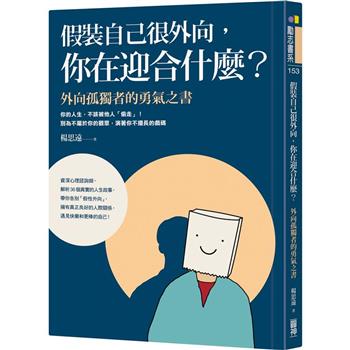財經暢銷書《大缺貨》、《下一波全球經濟浩劫》作者
大膽預言AI將危害金融市場,重創全球經濟安全!
人工智慧對金融市場,將造成什麼樣的改變?
2022年底OpenAI推出聊天機器人GPT-4,短短兩個月內,就觸及全球一億位用戶,是最炙手可熱、成長最快速的應用程式。「人工智慧」全方位攻佔新聞、廣告標題,成為辦公室與生活中無所不在的話題。
華爾街老手,同時也是《大缺貨》(Sold Out)、《下一波全球經濟浩劫》(Aftermath)等財經暢銷書的作者——詹姆斯‧瑞卡茲(James Rickards)在新書中清楚解析,為什麼AI使得全球金融秩序、國家安全,暴露於前所未有的危機之中。
作者指出,當人類過度依賴系統,這些系統就注定會失靈。儘管廣泛應用AI可以幫助降低成本、提高效率,但是一旦發生問題,拋售會引發更多拋售,銀行擠兌將如閃電般快速,使得金融與經濟在迅雷不及掩耳、來不及採取人為干預的情況下,陷入混亂和風暴中。由於AI缺乏人類的同理心和干預的本能,全面性的核武戰爭等極端的作為,變得更可能發生。我們需要考慮的,並非AI會故障之類的風險;相反地,正因為AI會迅速、確實執行預設指令,才會引爆真正的危機。
在資本市場擁有超過三十年經驗、曾參與許多重大金融事件的作者強調,唯有重視人性、邏輯和常識等固有的干預措施,才能管控風險,讓人類免於浩劫。(文/博客來編譯)
From the New York Times bestselling author of The New Great Depression and Currency Wars, a telling prediction for how AI will endanger global economic markets and security
In November 2022, OpenAI released GPT-4 in a chatbot form to the public. In just two months, it claimed 100 million users--the fastest app to ever reach this benchmark. Since then, AI has become an all-consuming topic, popping up on the news, in ads, on your messenger apps, and in conversations with friends and family. But as AI becomes ubiquitous and grows at an ever-increasing pace, what does it mean for the financial markets?
In MoneyGPT, Wall Street veteran and former advisor to the Department of Defense James Rickards paints a comprehensive picture of the danger AI poses to the global financial order, and the insidious ways in which AI will threaten national security. Rickards shows how, while AI is touted to increase efficiency and lower costs, its global implementation in the financial world will actually cause chaos, as selling begets selling and bank runs happen at lightning speed. AI further benefits malicious actors, Rickards argues, because without human empathy or instinct to intervene, threats like total nuclear war that once felt extreme are now more likely. And throughout all this, we must remain vigilant on the question of whose values will be promoted in the age of AI. As Rickards predicts, these systems will fail when we rely on them the most.
MoneyGPT shows that the danger is not that AI will malfunction, but that it will function exactly as intended. The peril is not in the algorithms, but in ourselves. And it’s up to us to intervene with old-fashioned human logic and common sense before it’s too late.












